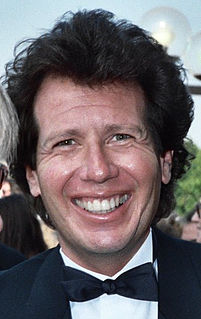A Quote by Ben Katchor
In America, there's a very long tradition of a comic strip that comes in newspapers, which is not true all over the world. To sell papers, they put color comics in.
Related Quotes
In America, there's a very long tradition of a comic strip that comes in newspapers, which is not true all over the world. To sell papers, they put color comics in. It's worked, up until now. Now these papers can't afford it. They always had minuscule ad budgets, and now the things which people probably read these papers for are gone.
I'd always enjoyed the comics more, and felt that as long as I was unemployed it would be a good chance to pursue that and see what response I could get from asyndicate, as I didn't have anything to lose at that point. So I drew up a comic strip - this was in 1980 - and sent it off and got rejected. I continued that for five years with different comic strip examples 'til finally Calvin and Hobbes came together. But it's been a long road.
The syndicates take the strip and sell it to newspapers and split the income with the cartoonists. Syndicates are essentially agents. Now, can you imagine a novelist giving his literary agent the ownership of his characters and all reprint, television, and movie rights before the agent takes the manuscript to a publisher? Obviously, an author would have to be a raving lunatic to agree to such a deal, but virtually every cartoonist does exactly that when a syndicate demands ownership before agreeing to sell the strip to newspapers.
It's a mystery to me why comics have been so despised for so long. Obviously, it has to do with the history of the medium - arising out of cheaply-reprinted booklets of newspaper strips, just out to make a quick buck, followed by mostly-crappy original work. It took a while for really talented artists to move into the comic-book world from the newspapers. It really is strange that even TV commercials got respect before comics did. I have never been able to figure it out.
The lovely thing about writing comics for so many years is that comics is a medium that is mistaken for a genre. It's not that there are not genres within comics, but because comics tend to be regarded as a genre in itself, content becomes secondary; as long as I was doing a comic, people would pick it up.
I came in with a very specific idea about what a Doctor Strange movie should be, which was rooted in the comics, and I thought it should be as weird and as visually ambitious compared to modern comic book movies as the comic was when it showed up in the '60s compared to other comic books at the time.
I think if you have a comic perspective, almost anything that happens you tend to put through a comic filter. It's a way of coping in the short term, but has no long term effect and requires constant, endless renewal. Hence people talk of comics who are "always on." It's like constantly drugging your sensibility so you can get by with less pain.
'Modesty Blaise' is not well known in the United States, but in the United Kingdom, she's an institution - especially for a comic book reader of a certain age. She's a wonderful creation, and her strip ran in newspapers for a long time. So whenever female spies come to mind for us, they think of 'Modesty Blaise'.






























